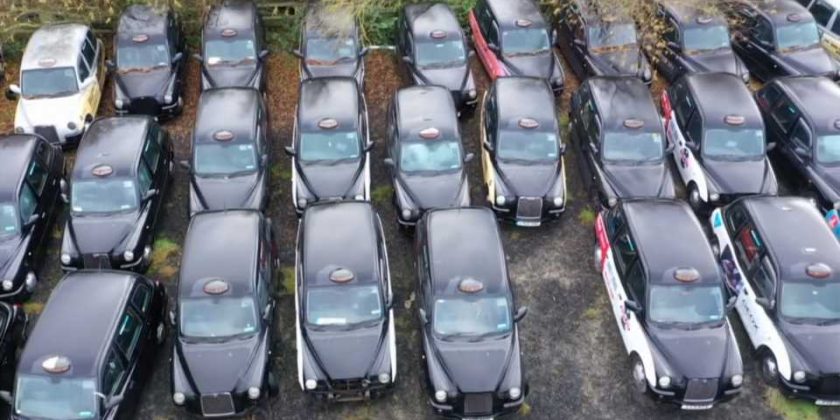The black cab is an iconic symbol of London and indeed England as a whole. They’re operated only by highly trained, professional drivers, and being a cabbie in London is a respectable career. Now, however, the industry is going through hard times. Due to the pandemic, ridership is down to a crawl, and the money to stay in business is drying up. As a result, thousands of London’s black cabs have been taken off the streets.
In total, something like 20 percent of London’s black cabs are inactive, a situation that only seems like it will get better once the pandemic is finally over. Recovery is potentially in sight with vaccine distribution finally beginning, though it’s unknown if the taxi industry, like many others, will be close to the same any time soon. In a short Bloomberg video, the severity of the situation became utterly clear in interviews with a few drivers.
The situation for those drivers still on the road isn’t great, either. One mentions that, on the day the video was filmed, he made just 70 British Pounds, or about $94. That’s barely any money when things like rent, insurance, and various other expenses are subtracted. Many London black cab drivers also have to rent their vehicles for approximately $375 per week, which takes a big bite out of their income. Places like train stations and airports that used to be consistent sources of rides have also dried up, meaning reliable income has simply disappeared.
Some drivers have directed their disappointment in the situation at London’s mayor, Sadiq Khan, who they say has done nothing to help them. One cab driver told Sky News on Nov. 19 that “Liverpool put something in place, Manchester’s Andy Burnham, the king of the north that people champion, is trying to put help in place for the cab drivers up in Manchester. Sadiq Khan has done nothing.”
Speaking to the New York Times, Steve McNamara, general secretary of the Licensed Taxi Drivers’ Association, which represents about half of London’s cabbies, says that the pandemic is a more existential threat to the black cabs than ridesharing services like Uber. “It’s awful, and it’s getting worse,” McNamara explained. He claims just a fifth of London’s cabs are still actually operating, and those still on the road, as previously mentioned, are barely scraping by.
This situation is a dire one, especially in the context of the black cab’s shift to sustainable energy. Many London black cabs are transitioning into being fully electric or hybrid vehicles, a necessary change that’s already costing the industry money as England plans to ban the sale of new solely internal combustion vehicles by 2030.
So, relief for London’s black cabs may be on the way with the arrival of long-anticipated vaccines, but it can’t come soon enough. With cases rising around the world, the situation is likely to get worse before it gets better. We can only hope that industries like these recover when this pandemic finally ends.
Got a tip? Send us a note: [email protected]
Source: Read Full Article
